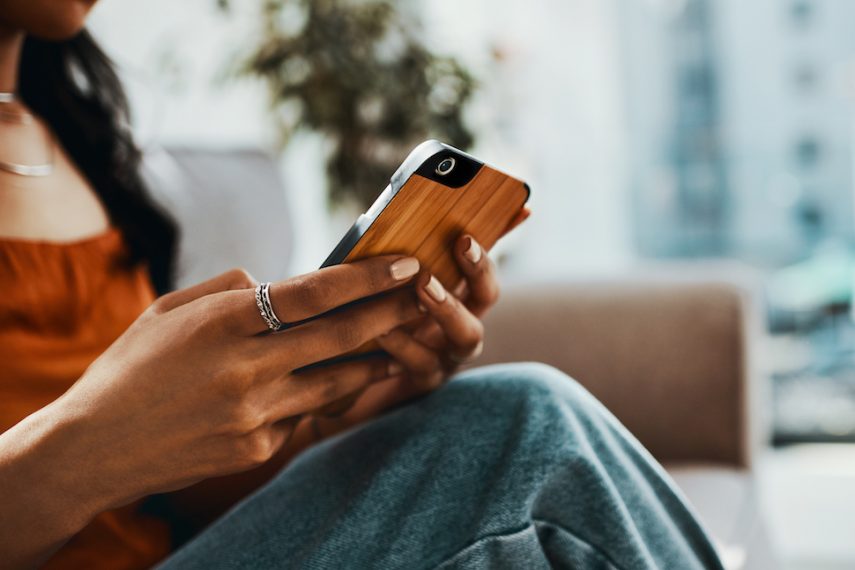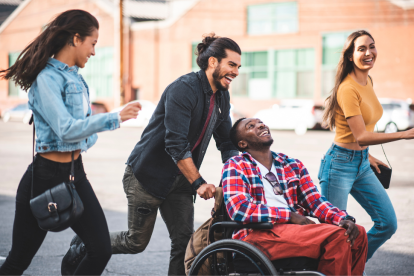How Social Media Has Affected Our Mental Health Throughout the COVID-19 Pandemic

Social media use rose during the pandemic as people struggled to find ways to fill lonely and difficult hours stuck at home. The use of social media can be positive, but it triggers negative emotions, anxiety, and depression for many people. The pandemic only exacerbated these issues, but it is possible to make positive changes to turn a bad relationship with social media into better mental health.
If you found yourself endlessly scrolling through social media during the pandemic—even more than usual—you’re not alone. Use increased as many of us were forced to stay home and avoid actual contact with people.
The effects of increased use of social media, especially during this difficult time in world history, have been detrimental to mental health.
You can turn your habits around, spend less time on social media, make more real social connections, and improve your mood with a few simple changes.
How Does Social Media Affect Mental Health?
Long before the COVID-19 pandemic began, mental health experts noticed that social media use could be detrimental to wellness. While many people can use social media in positive ways and even get emotional benefits from it, others do not. These are some of the ways social media can negatively impact your health, whether during a pandemic or not:
- You may feel inadequate when you compare yourself to others. People share vacations, new relationships, and other positive experiences that make you feel as if your life isn’t good enough.
- These other posts can also give you a powerful sense that you are missing out on things, especially if you see friends or family doing things without you.
- Social media use tends to increase loneliness, perhaps because it replaces time spent with people face-to-face. Studies show that lessening social media time decreases loneliness.
- Trolling and bullying on social media can trigger depression and lower self-esteem.
- Social media use can become an addictive behavior.
All of these effects have the potential to worsen mental health by increasing anxiety, stress, depression, and loneliness.
Social Media and the Pandemic
The lockdown that began in 2020 changed how people use technology. People turned to videoconferencing, for instance, to stay in touch with loved ones. With more time spent at home, many people also used social media sites more often.
Statistics indicate that usage increased due to the pandemic. The average amount of time a person spent on social media daily in 2020 was 65 minutes. This was an increase of more than ten minutes from the previous year and does not include other online minutes.
During the pandemic, people used social media for a variety of reasons: for social interaction, for entertainment and to pass the time, and to stay up-to-date on the news, especially on the pandemic, the virus, and vaccines.
Increased time on social media was probably inevitable during the pandemic. Unfortunately, this only added to the detrimental effects these sites have on many people, from increasing depression to sewing fear with false information.
Social Media Plus News Coverage Equals Depression
The onset of the pandemic only fueled the existing relationship between social media and depression for some people. A study of over 500 women in China found that increased use of social media during the pandemic correlated with higher levels of depression.
The researchers found that the effect was greater for women more exposed to news of the pandemic and other disasters occurring in the world. In other words, reading about negative news amplified the already damaging effect of social media on mood.
The Impact of Misinformation
Social media platforms are lightly, if at all, regulated, although this is changing. Nearly anyone is free to post anything, whether it’s true or not. From average Joe trolls to fake news sites and foreign bots, misinformation is rampant on social media.
Wrong information and downright lies about COVID-19, current events, politics, and more contribute to stress and anxiety in many people. The prevalence of this information that was damaging to both physical and mental health led to changes during the pandemic. Some sites finally started flagging and removing bad content to protect users.
Misinformation has been so damaging during the pandemic because it plays on existing fears. People are already stressed and worried. Scare stories only made it worse.
The Effects of Endless Scrolling in a Pandemic
Most people understand the impulse to just keep scrolling through social media sites. It becomes a habit, and for some people, an unhealthy compulsion. When world news is as bad as it has been during the pandemic, the negative effects of endless scrolling are even worse.
There is even a term for this, the impulse to keep scrolling through bad news: doomscrolling. The habit became so prevalent during the pandemic that Dictionary.com made it a word that means obsessively checking online news and social media, knowing full well that it will be bad and will negatively impact your mood.
Doomscrolling is bad for your mental health because it reinforces the negative emotions you already associate with the pandemic and the state of the world. If you already struggle with depression and anxiety, doomscrolling will make it worse.
Hope is Just a Phone Call Away
844-252-8202Social Media Takes Away from Healthy Habits
Social media use doesn’t have to be inherently bad, but if your time spent online has increased in the pandemic, you may be spending less time on habits that promote mental health. For instance, as restrictions loosened, you may have struggled to get back to in-person contact with friends or family.
Too much time on social media can also decrease the time you spend on activities good for both physical and mental health, like exercise or planning healthy meals. It can also interfere with your sleep, which impacts your mental health.
Can Social Media Ever Benefit Mental Health?
Like most things, social media usage can be both good and bad. When used in a healthy way, social media can actually improve mental health and social well-being.
Regular use of social media connects you to other people. These platforms can be powerful tools for social connection, especially when the pandemic keeps people physically apart. It is this connectivity that reaps the most benefits from using social media.
More important than frequency or duration is how you use social media sites. If you are mindful, use it to connect positively with others, and don’t become obsessed or weighed down by fear of missing out or social comparisons, social media can benefit your health.
How to Use Social Media to Improve Mental Health
It’s all about how you use it. Here’s how to keep social media in your life as the pandemic wears on without losing your good mental health:
- Put a limit on it. You should see immediate benefits from simply limiting how much time you spend on social media. Set aside a few times a day to check your feeds and stay logged out the rest of the time.
- Adjust your attitude. Research has found that a person’s perception of how they use social media has a major impact on whether the effects are positive or negative. Approach your time on social media in this light, as a tool to connect with others and as a healthy pastime, not a negative obsession.
- Focus on positive content. A study of social media use during COVID-19 found that people who scrolled through pandemic-related news experienced an immediate drop in mood. Those that saw content related to COVID but focused on acts of kindness did not. Consider deleting or unfollowing accounts that post news or negative stories and follow positive contributors instead.
- Use it as a social connection. Spend time on your sites engaging with the people you care about, especially those you have been unable to see much or at all during the pandemic. Reach out to someone you haven’t spoken to in a long time. Instead of passively scrolling, engage positively with people.
- Cut ties where needed. If you have that one family member or coworker on social media whose posts always bring you down, don’t hesitate to block them. Your mental health is more important.
Social media has been a lifeline for many during a global pandemic and months-long lockdown. For others, it has been terrible for mental health. Most people fall into both categories. Reconsider the way you use and perceive social media. Be critical and decide where and how you can make healthier changes.






